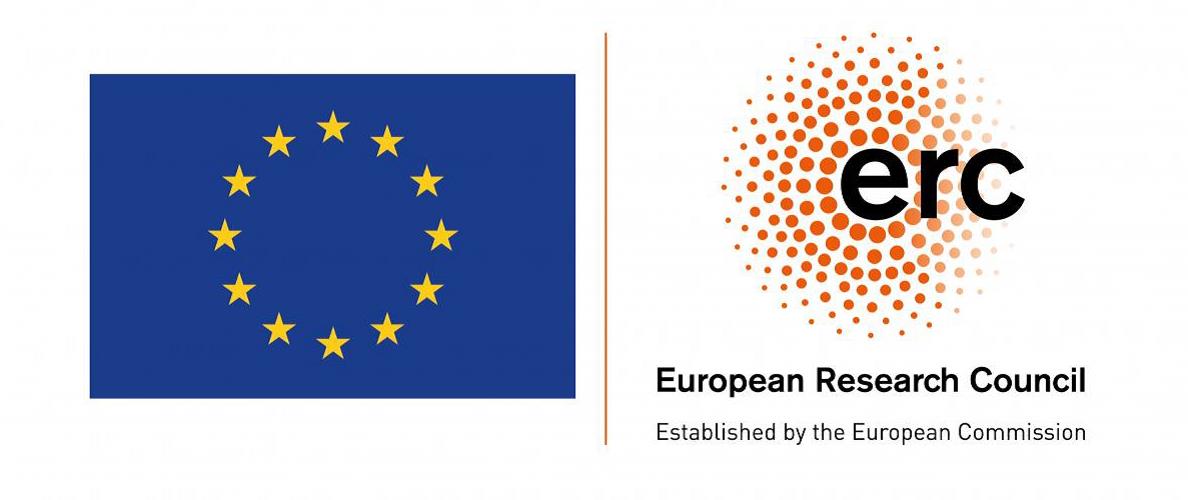Inequality-aware Market Design—an ERC Starting Grant funded by the European Commission—provides a novel way to address the growing problem of inequality in market-design settings. The redistributive objective distinguishes this theory from the traditional mechanism-design literature that has focused predominantly on efficiency and revenue as design goals; the focus on optimal allocation rules in a single marketplace complements the public-finance approach to redistribution through the tax system. IMD provides policy guidance by explaining whether and how policymakers concerned about inequality should resort to distortionary market interventions.
Policymakers often introduce rules constraining transactions in individual markets—such as rent control—or even choose to distribute scarce resources by circumventing markets completely, as is frequently the case for health care or transit. Yet, traditional economic intuition opposes these sorts of policies because—unlike well-functioning markets—they introduce allocative inefficiency.
In this project, we explore the optimal design of marketplaces in the presence of underlying inequalities between participants, developing a theory of Inequality-aware Market Design (IMD). The approach is to deploy a mechanism-design framework that identifies the optimal way to structure the market. In the baseline framework, the designer maximizes a welfare function whose welfare weights reflect her redistributive preferences induced by the inequalities between participants. Market participants may have private information both about their willingness to trade and their welfare weights.
Research focuses on testing the validity and scope of the main hypothesis: When inequalities are sufficiently pronounced and can be detected based on agents’ behavior in the market, it becomes optimal to sacrifice allocative efficiency to achieve a more desirable split of surplus. For example, as shown in our first paper on the topic (Dworczak ® Akbarpour ® Kominers, 2021), optimal market designs may involve inefficient rationing.

This work was supported by the ERC Starting grant IMD-101040122 "Inequality-Aware Market Design". Views and opinions expressed are those of the author only and do not necessarily reflect those of the European Union or the European Research Council. Neither the European Union nor the granting authority can be held responsible for them.
General audience communications:
-
Dla kogo i na jakich warunkach studia powinny być płatne, a dla kogo bezpłatne? Sprawdza Sylwia Radomska w cyklu GRAPE | Tłoczone z danych dla Dziennika Gazety Prawnej.
-
Jaka pomoc państwa bardziej pomaga? Sprawdza Filip Tokarski w cyklu GRAPE | Tłoczone z danych dla Dziennika Gazety Prawnej.
-
-
Jak silną kotwicą jest nasze własne doświadczenie? Sprawdza Paweł Doligalski w cyklu GRAPE | Tłoczone z danych dla Dziennika Gazety Prawnej.
-
-
-
Piotr otrzymał nagrodę im. Prof. Andrzeja Malawskiego za artykuł An economic framework for...
-
We are thrilled to invite researchers and students to IMD Days 2025, a unique workshop dedicated to exploring the role of markets and policy in addressing inequality.
-
Niewidzialna ręka wolnej gospodarki potrzebuje korekty? Sprawdza Joanna Krysta GRAPE | Tłoczone z danych dla Dziennika Gazety Prawnej.
-
Sprawdza Sylwia Radomska dla Dziennika Gazety Prawnej.
-
-
Od stycznia 2024 r. wartość świadczenia na dziecko wzrosła z 500 zł do 800 zł. Czy program 800+, wspierający rodziców w wychowaniu dzieci, jest potrzebny?
-
Kraje Europy Środkowo-Wschodniej cechują się od lat uporczywie niższymi poziomami zaufania społecznego i zaufania do instytucji publicznych w porównaniu do krajów Europy...
-
-
Czy nauczyliśmy się, jak z głową dzielić szczepionki? Lekcje z pandemii odrabia Piotr Dworczak GRAPE | Tłoczone z danych dla...
-
Czy podatki są skutecznym narzędziem ograniczającym palenie papierosów? Sprawdza Stanisław Cichocki GRAPE | Tłoczone z danych dla...
-
Mathematical models offer certain solutions to social problems, but implementing them in practice may spark certain controversies – says Piotr Dworczak interviewed by Justyna Orłowska,...
-
Są ekonomiści, którzy wiedzą i ci, którzy chcą się dowiedzieć. To ci drudzy robią przełomowe odkrycia. Takim człowiekiem był Robert Lucas. Zmarłego noblistę wspominają Piotr Żoch...
-
How market design can contribute to alleviating inequality by improving the targeting of the redistributive policies.
-
-
Źródło finansowania | Financing: European Commission through ERC Starting Grant (GA #101040122)
Projekt realizowany | Timeline: 07/2022 -- 07/2027
Kierownik | Principal Investigator: Piotr Dworczak
Budżet łączny | Total budget: 1 191 561 EUR
- wynagrodzenia dla podstawowych wykonawców | compensation to researchers: 647 000 EUR
- stypendia dla młodych badaczy | scholarships for young scholars: 153 200 EUR
- komputery i oprogramowanie | hardware and software: 9 044 EUR
- konferencje i inne wyjazdy | conference travels: 141 205 EUR
- materiały i usługi obce | usables and outsourced services: 74 122 EUR
- koszty pośrednie dla FAME | overheads for FAME: 236 000 EUR

This work was supported by the ERC Starting grant IMD-101040122 "Inequality-Aware Market Design". Views and opinions expressed are those of the author only and do not necessarily reflect those of the European Union or the European Research Council. Neither the European Union nor the granting authority can be held responsible for them.
The IMD project has two key objectives. The first and leading objective is to develop a comprehensive theory of Inequality-aware Market Design (IMD). We will study the question of optimal redistribution in the framework of mechanism design. This approach marries the equity-efficiency trade-off (extensively analyzed in the public-finance literature) with the focus on the design of a single marketplace in the tradition of market and mechanism design. The optimal redistribution question is posed by assuming that the designer's objective function includes social welfare weights that can depend on agents' observed and unobserved characteristics. The social welfare weights allow the designer to account for the consequences of inequalities between market participants; their inclusion sets the framework apart from the traditional mechanism-design analysis which has been, with notable exceptions discussed below, oblivious to these inherent inequalities.
The second, complementary objective is to establish IMD as an emerging field within economic theory by actively building the research community, promoting its importance, and creating links to neighboring research areas. On top of developing the theory, we will engage in activities aimed at establishing IMD as a new area within economic theory, with strong connections to existing research communities. The strategy to achieve this objective consists of two sets of activities, derived naturally from the fact that IMD lies at the intersection of two fields, mechanism design and public finance.
 |
Mohammad Akbarpour, Graduate School of Business, Stanford University Mohammad's research interests include market design, redistributive mechanisms, and network theory. Within these fields he investigates subjects as disparate as auctions, dynamic matching, kidney markets, redistributive policies, and diffusion in networks. |
 |
Eric Budish, Booth School of Business, University of Chicago Eric's main area of research is market design, with specific topics studied including financial markets, matching markets, ticket markets, blockchains and cryptocurrencies, and incentives for innovation. |
 |
Scott Duke Kominers, Entrepreneurial Management Unit, Harvard Business School; Harvard Department of Economics; Harvard Center of Mathematical Sciences and Applications; a16z crypto Scott's research interests include mathematical economics, market and mechanism design, matching theory, game theory, innovation, law and economics, eminent domain, patent policy, agglomeration, predictive cities and economics of entry. |
 |
Ellen Muir, Economics Department, Harvard University Ellen's research interests include mechanism design, market design and industrial organization. |
|
Marco Reuter, International Monetary Fund Marco's research interests are Applied Microeconomic Theory, Blockchains and Cryptocurrencies, Digital Money, and Market and Mechanism Design. |
 |
Frank Yang, Stanford Graduate School of Business Frank's areas of research are Microeconomic Theory, Mechanism Design, and Industrial Organization. |
Opublikowane | Published
-
How to Allocate Money? | American Economic Journal: Microeconomics Przeczytaj streszczenie | Read abstract
I study a simple equity-efficiency problem: A designer allocates a fixed amount of money to a population of agents differing in privately observed marginal values for money. She can only screen by imposing an “ordeal,” that is, by allocating more money to agents who engage in a socially wasteful activity (such as queuing or filling out forms). I show that giving a lump-sum transfer is outperformed by an ordeal mechanism when agents with the lowest money-denominated cost of engaging in the wasteful activity have an expected value for money that exceeds the average value by more than a factor of two.
-
Labour market policies | Oxford Handbook of Polish Politics Przeczytaj streszczenie | Read abstract
While GDP performance in Poland was exceptional, the performance of the Polish labour markets has been less satisfactory. This chapter discusses the institutional arrangement behind setting labour market policies in Poland. We build narratives concerning the evolution of three major labour market policies: active employment policies, social insurance and employer-employee relations. We ask three questions: (i) how have active labour market policies been assisting to combat unemployment; (ii) how have social security reforms been assisting in easing the consequences of demographic transition; and (iii) how have gender equality policies contributed to alleviating the situation of women? We thus portray the evolution of three main labour market policies. We show how these policies fell short of reaching the full potential for transforming the Polish labour market from a centrally planned fiasco into a modern and functionally inclusive environment.
-
Incentive separability | Journal of Political Economy: Microeconomics Przeczytaj streszczenie | Read abstract
We consider a general mechanism-design environment in which the planner faces incentive constraints such as the ones resulting from agents' private information or ability to take hidden actions. We study the properties of optimal mechanisms when some decisions are incentive-separable: A set of decisions is incentive-separable if, starting at some initial allocation, perturbing these decisions along agents' indifference curves preserves incentive constraints. We show that, under regularity conditions, the optimal mechanism allows agents to make unrestricted choices over incentive-separable decisions, given some prices and budgets. Using this result, we extend and unify the Atkinson-Stiglitz theorem on the undesirability of differentiated commodity taxes and the Diamond-Mirrlees production efficiency result. We also demonstrate how the analysis of incentive separability can provide a novel justification for in-kind redistribution programs similar to food stamps.
-
Inequality and Market Design | ACM SIGecom Exchanges Przeczytaj streszczenie | Read abstract
Policymakers are often concerned about inequalities in the markets they control. In this letter, I argue that mechanism design has not responded sufficiently to the need for a comprehensive theory of inequality-aware market design. I review some of my recent work trying to fill this gap and identify research directions where input from computer scientists would be particularly useful.
-
An economic framework for vaccine prioritization | Quarterly Journal of Economics Przeczytaj streszczenie | Read abstract
We propose an economic framework for determining the optimal allocation of a scarce supply of vaccines that become gradually available during a public health crisis, such as the Covid-19 pandemic. Agents differ in observable and unobservable characteristics, and the designer maximizes a social welfare function over all feasible mechanisms—accounting for agents’ characteristics, as well as their endogenous behavior in the face of the pandemic. The framework emphasizes the role of externalities and incorporates equity as well as efficiency concerns. Our results provide an economic justification for providing vaccines immediately and for free to some groups of agents, while at the same time showing that a carefully constructed pricing mechanism can improve outcomes by screening for individuals with the highest private and social benefits of receiving the vaccine. The solution casts light on the classic question of whether prices or priorities should be used to allocate scarce public resources under externalities and equity concerns.
-
Redistributive allocation mechanisms | Journal of Political Economy Przeczytaj streszczenie | Read abstract
Many scarce public resources are allocated below market-clearing prices (and sometimes for free). Such "non-market" mechanisms necessarily sacrifice some surplus, yet they can potentially improve equity by increasing the rents enjoyed by agents with low willingness to pay. In this paper, we develop a model of mechanism design with redistributive concerns. Agents are characterized by a privately observed willingness to pay for quality, and a publicly observed label. A market designer controls allocation and pricing of a set of objects of heterogeneous quality, and maximizes a linear combination of revenue and total surplus| with Pareto weights that depend both on observed and unobserved agent characteristics. We derive structural insights about the form of the optimal mechanism and describe how social preferences influence the use of non-market mechanisms.
-
Redistribution through markets | Econometrica Przeczytaj streszczenie | Read abstract
Policymakers frequently use price regulations as a response to inequality in the markets they control. In this paper, we examine the optimal structure of such policies from the perspective of mechanism design. We study a buyer-seller market in which agents have private information about both their valuations for an indivisible object and their marginal utilities for money. The planner seeks a mechanism that maximizes agents’ total utilities, subject to incentive and market-clearing constraints. We uncover the constrained Pareto frontier by identifying the optimal trade-off between allocative efficiency and redistribution. We find that competitive-equilibrium allocation is not always optimal. Instead, when there is substantial inequality across sides of the market, the optimal design uses a tax-like mechanism, introducing a wedge between the buyer and seller prices, and redistributing the resulting surplus to the poorer side of the market via lump-sum payments. When there is significant within-side inequality, meanwhile, it may be optimal to impose price controls even though doing so induces rationing.
W toku | Work in progress
-
A price theory of price gouging Przeczytaj streszczenie | Read abstract
We propose an economic definition of price gouging: Price gouging occurs in a competitive market when lowering the price from the market-clearing level would increase total Utilitarian welfare. We then use price-theoretic tools to characterize determinants of price gouging in a setting with income heterogeneity and non-quasi-linear preferences that induce a motive to redistribute across agents. The circumstances under which price gouging occurs in our framework align with the contexts covered by existing anti‒price gouging laws. By proposing a definition of price gouging that does not appeal to any non-economic notions of (un)fairness or excess, we hope to provide a pathway for follow-up theoretical and empirical research.
-
Optimal redistribution via income taxation and market design Przeczytaj streszczenie | Read abstract
Policymakers often intervene in goods markets to effect redistribution -- for example, via price controls, differential taxation, or in-kind transfers. We investigate the optimality of such policies alongside the (optimally-designed) income tax. In our framework, agents possess private information about their ability to generate income and consumption preferences, and a planner maximizes a social welfare function subject to resource constraints. We uncover a generalization of the Atkinson-Stiglitz theorem by showing that goods markets should be undistorted if (i) individual utility functions feature no income effects, (ii) redistributive preferences depend only on agents’ ability, and (iii) there is no statistical correlation between ability and taste for goods. We also show, however, that the conclusion of the Atkinson-Stiglitz theorem fails if any of the three assumptions is relaxed. In a special case of our model with linear utilities, binary ability, and continuous willingness to pay for a single good, we characterize the globally optimal mechanism and show that it may feature means-tested consumption subsidies, in-kind transfers, and differential commodity taxation.
-
Optimal membership design Przeczytaj streszczenie | Read abstract
Membership design involves allocating an economic good whose value to any individual depends on who else receives it. We introduce a framework for optimal membership design by combining an otherwise standard mechanism-design model with allocative externalities that depend flexibly on agents’ observable and unobservable characteristics. Our main technical result demonstrates that the optimal mechanism offers distinct membership tiers—differing in prices and level of access—and that the number of membership tiers is increasing in the complexity of the externalities. This insight may help explain a number of mechanisms used in practice to sell membership goods, including musical artists charging below-market-clearing prices for concert tickets, certain admission procedures used by colleges concerned about the diversity of the student body, heterogeneous pricing tiers for access to digital communities, and the use of vesting and free allocation in the distribution of network tokens.
-
A mechanism-design approach to property rights Przeczytaj streszczenie | Read abstract
We propose a framework for studying the optimal design of rights relating to the control of an economic resource - which we broadly refer to as property rights. An agent makes an investment decision, affecting her valuation for the resource, and then participates in a trading mechanism chosen by a principal in a sequentially rational fashion, leading to a hold-up problem. A designer - who would like to incentivize efficient investment and whose preferences may differ from those of the principal - can endow the agent with a menu of rights that determine the agent's set of outside options in the interaction with the principal. We characterize the optimal rights as a function of the designer's and the principal's objectives, and the investment technology. We find that optimal rights typically differ from a classical property right giving the agent full control over the resource. In particular, we show that the optimal menu requires at most two types of rights, including an option-to-own, which grants
the agent control over the resource upon paying a pre-specified price. -
Comparison of screening devices Przeczytaj streszczenie | Read abstract
A designer relies on a costly screening device to allocate a set of goods, aiming to maximize a social welfare function. We provide conditions for one screening device to dominate another. We show that the performance of a screening device depends on two channels: (i) targeting effectiveness which measures the alignment between the implemented and desired assignments, and (ii) rent provision which determines the utilities of agents receiving the goods net of the screening costs. We link these two channels to distinct properties of the joint distribution of agents’ characteristics, leading to a number of simple empirical tests for comparing screening devices.
-
A market-design response to the European energy crisis Przeczytaj streszczenie | Read abstract
Due to surges in gas and electricity prices in Europe, many households will struggle to heat their homes this winter. This paper provides high-level guidance on designing a relief policy in a way that optimally trades off equity and efficiency. We argue that, contrary to conventional economic intuitions, an optimal policy may involve directly controlling prices. Because governments do not have perfect information about households' needs, price controls could improve the targeting of relief through screening out the most vulnerable by offering them discounts for reducing consumption. This could be achieved by “threshold price caps" that lower the price of all energy units below some consumption threshold and price units above the threshold at a higher rate.
The IMD seminar series brings together researchers from various fields (economic theory, public finance, development economics, industrial organization) interested in inequality and redistribution, especially in the context of market design. The idea behind the seminar is precisely that the series is centered on a topic, rather than on a methodology. In particular, both theoretical and empirical papers are presented.
The IMD seminar is an (approximately) biweekly event running from the beginning of the summer till the end of the year. It takes place online, with occasional in-person talks at GRAPE. We're meeting on Wednesdays at 5pm CET (11am EST/ 8am PST)
If you would like to be added to our mailing list (and obtain the Zoom link), please email IMD@grape.org.pl or fill out the sign-up form.
The IMD seminar series is concluded for 2024. Please stay tuned for the 2025 schedule!
Past talks:
2025
24 July 2025: Filip Tokarski (Stanford; GRAPE), internal seminar
4 August 2025: Zi Yang Kang (University of Toronto), internal seminar
11 August 2025: Loren Fryxell (City St George's, University of London), internal seminar
12 August 2025: Joanna Krysta (Stanford; GRAPE), internal seminar
13 August 2025: Paweł Doligalski (University of Bristol; GRAPE), internal seminar
2024
26 June 2024: Loren Fryxell (Oxford), "Public Good Provision Re-Examined"
10 July 2024: Vasiliki Skreta (UT Austin, UCL and CEPR), "Selling Diversity"
22 July 2024 (Monday!) Chang Liu (UNSW), "Robust Contracts with Exploration," special in-person talk in coordination with Warsaw Economic Seminars
7 August 2024, Mitchell Watt (Stanford), ``In-Kind Subsidy Design"
14 August 2024, Victor Augias (Bonn), special in-person talk, "Non-Market Screening with Investment"
21 August 2024, Lassi Ahlvik (University of Helskinki), "Pigouvian Income Taxation"
4 September 2024, Koichiro Ito (University of Chicago), "Choosing Who Chooses: Selection-Driven Targeting in Energy Rebate Programs"
18 September 2024, Johanna Rayl (Northwestern), "Redistribution with Limited Information: Cash Transfers and Fuel Subsidies in Indonesia"
2 October 2024, Neil Thakral (Brown), The Public Housing Allocation Problem
2023
14 June 2023: Alexis Ghersengorin (PSE/Sciences Po), "Personalized Pricing with Redistributive Concerns", see more here.
28 June 2023: Stefanie Stantcheva (Harvard), "Zero-Sum Thinking and the Roots of U.S. Political Divides", see more here.
5 July 2023: Arseniy Samsonov (Budapest University of Technology), "Bargaining over Information Structures" (special in-person talk), see more here.
12 July 2023: Pierre Boyer (École polytechnique–CREST), "Pareto-improving tax reforms and the Earned Income Tax Credit", see more here.
26 July 2023: Antoine Ferey (École polytechnique–CREST), "Sufficient statistics for nonlinear tax systems with general across-income heterogeneity", see more here.
3 August 2023: Raghav Malhotra (University of Warwick/University of Leicester), "Age-dependant taxes and retirement financing" (special in-person talk).
9 August 2023: Ayşe Ökten İmrohoroğlu (University of Southern California), "Homelessness", see more here.
23 August 2023: Damián Vergara (Princeton), "Minimum Wages and Optimal Redistribution", see more here.
6 September 2023: Eduardo Perez-Richet (Sciences-Po), "Fraud-proof non-market allocation mechanisms", see more here.
20 September 2023: Anqi Li (Virginia Tech), "Rationally inattentive statistical discrimination: Arrow meets Phelps"
2022
27 July 2022: Pawel Doligalski (University of Bristol; GRAPE), "Redistribution with Performance Pay", see more here.
10 August 2022: Zi Yang Kang (Stanford University), "Optimal Redistribution Through Public Provision of Private Goods", see more here.
24 August 2022: Philipp Strack (Yale University), "Taxing Externalities without Hurting the Poor", see more here.
7 September 2022: Ravi Jagadeesan (Stanford University), "The Limits of Capital Taxation: Optimal Taxation of Private Businesses", see more here.
21 September 2022: Lucie Gadenne (Queen Mary University of London), "In-Kind Transfers as Insurance", see more here.
5 October 2022: Raghav Malhotra (University of Warwick), "Rethinking Distribution: Introducing Market Segmentation as a Policy Instrument", see more here.
2 November 2022: Kate Smith (LSE; IFS), "Optimal sin taxation and market power" & "Price floors and externality correction", see more here.
30 November 2022: Arpad Abraham (University of Bristol), "Tax Wedges, Financial Frictions and Misallocation", see more here.
IMD Days bring together researchers and students interested in understanding the role of markets and policy in addressing the problem of inequality. The goal of the workshop is to create bridges between fields (economic theory, public finance, welfare economics, applied microeconomics) and discuss different perspectives and approaches (theoretical and empirical). IMD Days will feature a few longer talks in a “summer school style” as well as shorter “conference style” talks. The program will create ample opportunities for long conversations and networking.
For more information, please visit IMD Days 2025 webpage.

EC’22 Tutorial: Redistributive Market Design
by Mohammad Akbarpour, Piotr Dworczak, and Scott Duke Kominers
Brief description: Many scarce public resources are allocated at below-market-clearing prices—and sometimes for free. Such “non-market” mechanisms necessarily sacrifice some surplus, yet they can potentially improve equity. In this tutorial, we show how tools that have been developed in the past 40 years in mechanism design theory can be employed to identify the optimal structure of such redistributive policies. This work sheds light on how and when it may make sense to use non-market allocation systems, such as rationing and priority mechanisms.
Decades of mechanism design theory has almost exclusively focused on “revenue" or "efficiency" maximization, and a large body of such studies have been presented at EC. In practice, however, policymakers frequently design allocation mechanisms to address “inequality" in the markets they control. We will show how mechanism design theory can be oriented around equity in addition to efficiency—resulting in strikingly different prescriptions for the optimal mechanism.
Target audience: Graduate students, researchers, and advanced undergraduate students.
Prerequisites: The tutorial will assume basic familiarity with mechanism design. Some background on redistributive policy design will be helpful, but not essential
Structure of the tutorial:
Part I
- Introduction, motivation, basis ideas (Scott, 15 minutes)
- What's the optimal price in a market with inequality? (Mohammad, 30 minutes)
Part II
- A mechanism-design approach (Piotr, 30 minutes)
- Conclusions, future directions, open problems (Scott, 15 minutes)
Key references:
- Akbarpour, M. ® Dworczak, P. ® S. D. Kominers (2021): "Redistributive Allocation Mechnisms," Working paper
- Condorelli, D. (2013): "Market and non-market mechanisms for the optimal allocation of scarce resources," Games and Economic Behavior, 82, 582--591.
- Dworczak, P. ® S. D. Kominers ® M. Akbarpour (2021): "Redistribution through markets," Econometrica, 89, 1665--1698.
- Myerson, R. B. (1981): "Optimal auction design," Mathematics of Operations Research, 6, 58--73.
- Saez, E. and S. Stantcheva (2016): "Generalized social marginal welfare weights for optimal tax theory," American Economic Review, 106, 24--45.
- Weitzman, M. L. (1977): "Is the price system or rationing more effective in getting a commodity to those who need it most?" Bell Journal of Economics, 8, 517--524.
Classical references:
- Akerlof, G. A. (1978): "The Economics of "Tagging" as Applied to the Optimal Income Tax, Welfare Programs, and Manpower Planning," American Economic Review, 68, 8--19.
- Atkinson, A. B. and J. E. Stiglitz (1976): "The design of tax structure: direct versus indirect taxation," Journal of Public Economics, 6, 55--75.
- Besley, T. and S. Coate (1991): "Public provision of private goods and the redistribution of income," The American Economic Review, 81, 979--984.
- Blackorby, C. and D. Donaldson (1988): "Cash versus kind, self-selection, and efficient transfers," The American Economic Review, 691--700.
- Che, Y.-K., I. Gale, and J. Kim (2013b): "Assigning resources to budget-constrained agents," Review of Economic Studies, 80, 73--107.
- Condorelli, D. (2012): "What money can't buy: Efficient mechanism design with costly signals," Games and Economic Behavior, 75, 613--624.
- Currie, J. and F. Gahvari (2008): "Transfers in cash and in-kind: Theory meets the data," Journal of Economic Literature, 46, 333--83.
- Diamond, P. A. and J. A. Mirrlees (1971): "Optimal taxation and public production I: Production efficiency," American Economic Review, 61, 8--27.
- Gahvari, F. and E. Mattos (2007): "Conditional cash transfers, public provision of private goods, and income redistribution," American Economic Review, 97, 491--502.
- Hartline, J. D. and T. Roughgarden (2008): "Optimal mechanism design and money burning," in Proceedings of the Fortieth Annual ACM Symposium on Theory of Computing, 75--84.
- Nichols, A. L. and R. J. Zeckhauser (1982): "Targeting transfers through restrictions on recipients," The American Economic Review, 72, 372--377.
New developments:
- Akbarpour, M. ® E. Budish ® P. Dworczak ® S. D. Kominers (2021): "An economic framework for vaccine prioritization"
- Fan, X., Y.-J. Chen, and C. S. Tang (2021): "Allocating Scarce Resources in the Presence of Private Information and Bargaining Power," HKUST Business School Research Paper No. 2021-021.
- Kang, M. and C. Z. Zheng (2020): "Pareto Optimality of Allocating the Bad," Working paper.
- Kang, M. and C. Z. Zheng (2022): "Optimal Design for Redistributions among Endogenous Buyers and Sellers," working paper
- Kang, Z. Y. (2020a): "Markets for goods with externalities," Working Paper.
- Kang, Z. Y. (2020b): "Optimal public provision of private goods," Working Paper.
- Matsushima, H. (2021), "Auctions with Ethical Concerns," Working Paper
- Reuter, M. and C.-C. Groh (2020): "Mechanism Design for Unequal Societies," Available at SSRN 3688376.
- Roy, A., Rehbeck J. (2021), "Obstacles to Redistribution Through Markets and One Solution," Working paper
Related techniques:
- Ashlagi, I., F. Monachou, and A. Nikzad (2020): "Optimal Dynamic Allocation: Simplicity through Information Design," Available at SSRN.
- Doval, L, Skreta, V (2021): "Constrained Information Design," Working paper
- Kleiner, A., B. Moldovanu, and P. Strack (2021): "Extreme Points and Majorization: Economic Applications," Econometrica, 89, 1557--1593.
- Muir, E. V. and S. Loertscher (2022): "Monopoly pricing, optimal randomization, and resale," Journal of Political Economy, 130.
- Toikka, J. (2011): "Ironing without control," Journal of Economic Theory, 146, 2510--2526.











